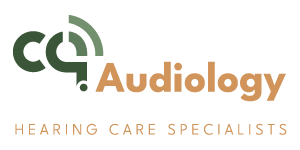Contact Us
We would love to speak with you.
Feel free to reach out using the below details.
Visit our main clinic
- T33 & 34A, City Centre Plaza, 24 Fitzroy Street, Rockhampton, QLD 4700
Get In Touch
- Phone: (07) 4848 6528
- Email: reception@cqaudiology.com.au
Trading Hours
- Mon-Fri 9:00AM - 5:00PM
- Sat 9:00AM - 12:00PM
Get a callback
Fill out the form below and we will contact you as soon as possible!
CQ Audiology Visiting Sites
BARCALDINE
Barcaldine 60 & Better Program
13 Willow Street
QLD 4725
BILOELA
Ace Medical Centre
48 Grevillea Street
QLD 4715
BLACKALL
Blackall Hospital
189 Landsborough Highway
QLD 4472
BLACKWATER
North Blackwater General Practice
14 Blain Street
QLD 4717
EMERALD
Lot 1 Pilot Farm Road
QLD 4720
MOUNT MORGAN
41 Morgan Strreet
QLD 4714
ROCKHAMPON CITY
T 33 & 34A City Centre Plaza
24 Fitzroy Street
QLD 4700
TAMBO
Tambo Multi Purpose Centre
26 Arthur Street, Tambo Queensland 4478
LONGREACH
North & West Queensland Primary Health Sercvies
19 Duck Street, Longreach Queensland 4730
YEPPOON
Keppel Bay Medical Centre
Shopt 26, Keppel Bay Plaza
64-67 James Street
QLD 4703

Experience Unmatched Clarity with Hearing Test Park Avenue - Rockhampton
Why Do I Need a Hearing Test?
Are you looking for a Hearing Test Park Avenue – Rockhampton QLD? Have you ever considered the impact that a simple hearing test could have on your life? Often, you might not notice the gradual changes in your hearing until they significantly affect your daily interactions and quality of life. By opting for regular hearing screenings, you’re not only safeguarding your auditory health but also ensuring that any signs of hearing loss are caught and managed early. What’s more, understanding the current state of your hearing could open up a new perspective on communication and social interactions. Isn’t it intriguing to think about how much you might be missing out on?Importance of Regular Hearing Tests
Regular hearing tests are essential for maintaining your hearing health and catching issues early. If you’re over 60, it’s recommended you have annual checkups to monitor your hearing. This regularity helps catch any decline that mightn’t be immediately obvious to you. For younger adults, testing every three to five years is advisable to detect any early changes in hearing ability. These tests aren’t just about finding out if you need hearing aids; they’re crucial for your overall well-being. Early detection and subsequent intervention can prevent further deterioration, which could significantly impact your quality of life. For children, the importance of early testing can’t be overstated—it’s pivotal for their language development and educational success. Moreover, regular hearing assessments can play a role in reducing cognitive decline. By diagnosing and managing hearing loss early, you’re not just taking care of your ears, but you’re also looking after your brain health. Each test provides an opportunity to adapt to any changes in your hearing, ensuring you’re not missing out on more than just sounds, but also on the fullness of life.Signs You Need a Hearing Test
If you’re struggling to follow conversations in noisy settings, it might be time to consider a hearing test. This difficulty could be the first clue that your hearing isn’t as sharp as it used to be. Additionally, if you find yourself frequently asking people to repeat themselves or needing to turn up the volume on your TV or radio, these are also signs that your hearing might be declining. Experiencing ringing in your ears, known as tinnitus, or feeling that sounds are muffled, can further indicate the need for a hearing test. These symptoms can be more than just annoying; they can be signs of underlying issues that a professional should evaluate. Children, too, might show signs that they need a hearing test. If a child is experiencing delays in their speech and language development, it could be due to hearing difficulties. Early detection and intervention are crucial in these cases to support proper development. Lastly, if you’re feeling increasingly frustrated or isolated because it’s hard to keep up with conversations, don’t overlook this emotional response. It’s not just about missing out on words; it’s about staying connected to your world. So, don’t hesitate to seek help and schedule a hearing test.Understanding Hearing Loss Types
Hearing loss comes in various forms, including conductive, sensorineural, mixed, congenital, and acquired. Each type affects your hearing in unique ways, and understanding them can help you identify what might be happening in your own situation. Conductive hearing loss occurs when there’s a problem in the outer or middle ear, which prevents sound from reaching the inner ear. Common causes include ear infections, fluid in the middle ear, or even earwax buildup. On the other hand, sensorineural hearing loss affects the inner ear or auditory nerve. It’s often the result of damage to the hair cells or nerve pathways from the inner ear to the brain. This might be due to exposure to loud noises, aging, or genetic factors. Mixed hearing loss combines elements of both conductive and sensorineural loss. You might experience this if you have long-term ear infections plus damage from noise exposure. Lastly, congenital hearing loss means you’re born with it, possibly due to genetic reasons or conditions affecting your mother during pregnancy. Acquired hearing loss develops after birth, possibly from disease, injury, or exposure to ototoxic drugs. Knowing these types can guide you in seeking the right help and understanding the potential changes in your hearing health.Overview of Hearing Test Procedures
You’ll find that various procedures are used during a hearing test to evaluate your auditory health accurately. An audiologist, who specialises in hearing and ear health, typically conducts these tests. They’re crucial for determining both the type and severity of hearing loss you might be experiencing. One common procedure is pure tone audiometry, which involves you listening to sounds at different pitches and volumes through headphones. You’ll indicate when you can hear the tones, helping the audiologist chart out the softest sounds you can detect at various frequencies. This test pinpoints how well you can hear sounds that are low, medium, or high-pitched. Another important test is tympanometry, which assesses the health of your middle ear. During this test, a device gently changes the air pressure in your ear canal, making your eardrum move back and forth. The device measures these movements, which can help reveal issues like fluid in the ear, eardrum perforations, or earwax blockage. These tests are pivotal for diagnosing your hearing capabilities and guiding the best treatment options. If you’re experiencing symptoms like difficulty hearing or ringing in your ears, it’s important to seek a hearing test promptly.Hearing Tests for Different Ages
Now let’s explore how hearing tests are tailored for different age groups to ensure everyone’s auditory health is accurately assessed. For children, particularly infants and toddlers, hearing tests are vital for monitoring developmental milestones. These young ones mightn’t be able to communicate their hearing experiences effectively. That’s why specialised behavioral and objective tests are used. These methods help determine if a child’s hearing is on track for their age without needing them to verbally respond. As you grow into an adult or if you’re already there, pure tone audiometry becomes the standard method. This test involves wearing headphones and listening to sounds at different frequencies. It measures the softest tones you can hear, pinpointing any specific ranges where your hearing might be less sensitive. Regardless of your age, regular hearing checks are crucial. They catch any deterioration early and keep you informed about your auditory health. Remember, hearing well is about more than just not missing out on sounds; it’s about quality of life. So, don’t skip these tests; they’re designed specifically for your age group to address and manage any potential hearing issues effectively.How to Access Hearing Tests
To access a hearing test, simply book an appointment at your local audiology clinic. You don’t need a doctor’s referral, making the process straightforward and hassle-free. Once you’ve decided to check your hearing, contacting an audiology clinic directly allows you to schedule a test at your convenience. If you’re eligible, you might consider the Australian Government Hearing Services Program, which offers fully subsidised hearing tests. This program is a fantastic resource, ensuring that finances don’t hinder your ability to have regular hearing assessments. Check their criteria to see if you qualify for this benefit. For those who might need more specialised care, a Medicare rebate is also an option, but you’ll need a referral from an Ear, Nose, and Throat (ENT) specialist. This path is suited if your GP suggests that your hearing concerns could be part of a broader health issue.Why Choose CQ Audiology for hearing test?
After exploring how to access hearing tests, consider CQ Audiology for its advanced equipment and experienced professionals when scheduling your next appointment. At CQ Audiology, you’ll find top-of-the-line technology specifically designed to deliver accurate results. This state-of-the-art equipment ensures that every aspect of your hearing is thoroughly assessed, providing a clear picture of your auditory health. The audiologists at CQ Audiology aren’t only experienced but also deeply committed to offering comprehensive evaluations. They take the time to understand your specific hearing concerns and are skilled in diagnosing a wide range of auditory issues. This level of expertise means you’re in capable hands, receiving care that’s tailored just for you. Moreover, the personalisation doesn’t end with the evaluation. CQ Audiology prides itself on creating customised treatment plans that directly address your unique needs based on your test results. Whether it’s managing hearing loss or enhancing hearing health, they’ve got you covered. To top it off, scheduling an appointment is a breeze. CQ Audiology offers flexible options to fit your busy schedule, ensuring that getting the help you need is convenient. Plus, they prioritise your comfort and satisfaction throughout the testing process, making it a stress-free experience.Conclusion
You’ve learned why regular hearing tests are key to maintaining your hearing health. If you’re struggling to follow conversations or noticing changes, it’s time to get tested. Understanding the types of hearing loss and familiarising yourself with the testing procedures can demystify the process. No matter your age, it’s crucial to stay on top of your auditory health. Reach out to CQ Audiology to schedule your test and take a proactive step towards preserving your hearing.DISCLAIMER: The content on our site is intended for educational purposes only and should not be interpreted as an endorsement or recommendation of any treatments or products without a comprehensive hearing assessment. Users should seek professional advice and fully understand any potential side effects or risks before starting any treatment. Products mentioned on our site are not available for purchase by the public without prior consultation with a hearing health expert.
